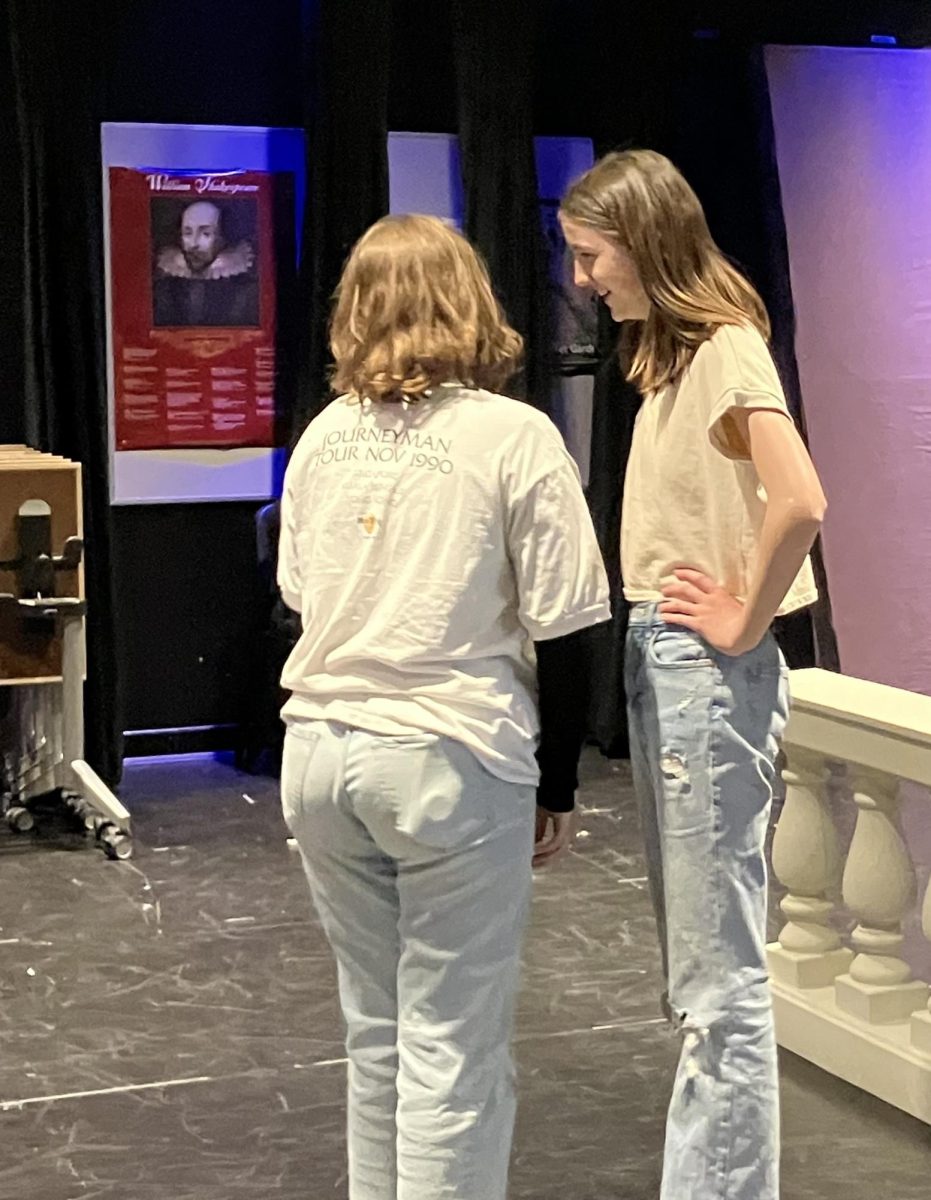When asked about movies with the best female characters, freshman Ashley Mitchell had an immediate answer.
“My mind goes to the new[est] Little Women movie, the 2019 version by Greta Gerwig. The characters in it are great for representation. There’s so many female characters and they have such diverse personalities.”
This movie is one of many that have been released in the past few years that received positive reviews from its female audience on the writing of its characters. What makes these movies more appealing to women? Sometimes, the answer lies with the concept of the ‘male gaze’.
For many people, the idea of the ‘male gaze’ is nothing more than a buzzword used to vilify any film or filmmaker that doesn’t create an accurate depiction of the feminine experience. But what is the male gaze in reality? It doesn’t just mean a man looking at a woman.
The male gaze is defined by the Oxford Dictionary of Media and Communication as “a manner of treating women’s bodies as objects to be surveyed, which is associated by feminists with hegemonic (dominant) masculinity, both in everyday social interaction and in relation to their representation in visual media.”
In popular culture, it is a manner of viewing women in films, videos, and images that empowers the viewer (the titular male) while placing the woman in a weakened or sexualized position. It views the woman as an object that exists only for the viewer’s satisfaction. ‘Little Women’ and similar films have been praised for avoiding the male gaze and other similar concepts, but other films are not so lucky.
Often, victims of the male gaze can end up as caricatures of ideal femininity that are difficult for some women’s rights activists to watch.
“It really bothers me because it’s like, I would never do that. I would never say that. I’m a woman. That character is not,” said junior Lucy Rouse. “It’s such an unrealistic expectation of how women should behave and act.”
Senior Ky Barksdale believes that the difference between a sexual woman and a sexualized woman is whether or not it is on her own terms.
“With Margot Robbie, for example, when she was playing Harley Quinn, the producers and directors wanted her to wear super-duper tiny shorts. She didn’t want to wear them and she didn’t feel comfortable… and that’s when I feel like [it’s detrimental], because she wasn’t comfortable and it just sexualized her.”
Despite all this, the male gaze can be easily avoided if precautions are taken in the filmmaking process. Junior Olivia Kottre believes that making sure women are on the writing board and production team is a simple way to avoid creating unrealistic or stereotypical female characters.
“When we have film and media that is for women, usually produced by women or someone who doesn’t think women are inferior, I feel like that is very empowering. When it is obvious that… she is in control and has made that choice for herself, I think that shows confidence and that is something that I am a fan of.” She finds it can also be enlightening to examine one’s biases and consider the media you consume in a critical light.
“As someone who is perceived as a man, I always have to look at it from an outside perspective.” Junior Sam Howard has a special perspective as someone with experience and an interest in video production. “[Sexualization of women] is especially sad when you see the result of these standards in day-to-day life, in how women exist in a near-constant state of fear and how men are emotionally isolated and perpetrate misogyny and views that lead to rape and sexual assault so frequently.”
In a study by the American Psychological Association Task Force, it was discovered that the repeated viewing of content that contains sexualization of women can lead to increased depression and anxiety in young girls. This can become dangerous over time, since the CDC recently reported that suicide rates among teenage girls is seeing an unprecedented increase.
So what helps certain films avoid this? Mitchell believes that diversity of characters is the key.
“If you can include multiple female characters, it can avoid stereotypes and misrepresentations. I’d also like to see positive representations and more female friendships.” Women are multifaceted human beings with inner lives that are just as rich as anyone else. However, they still often end up playing one-dimensional stereotypes on screen.


